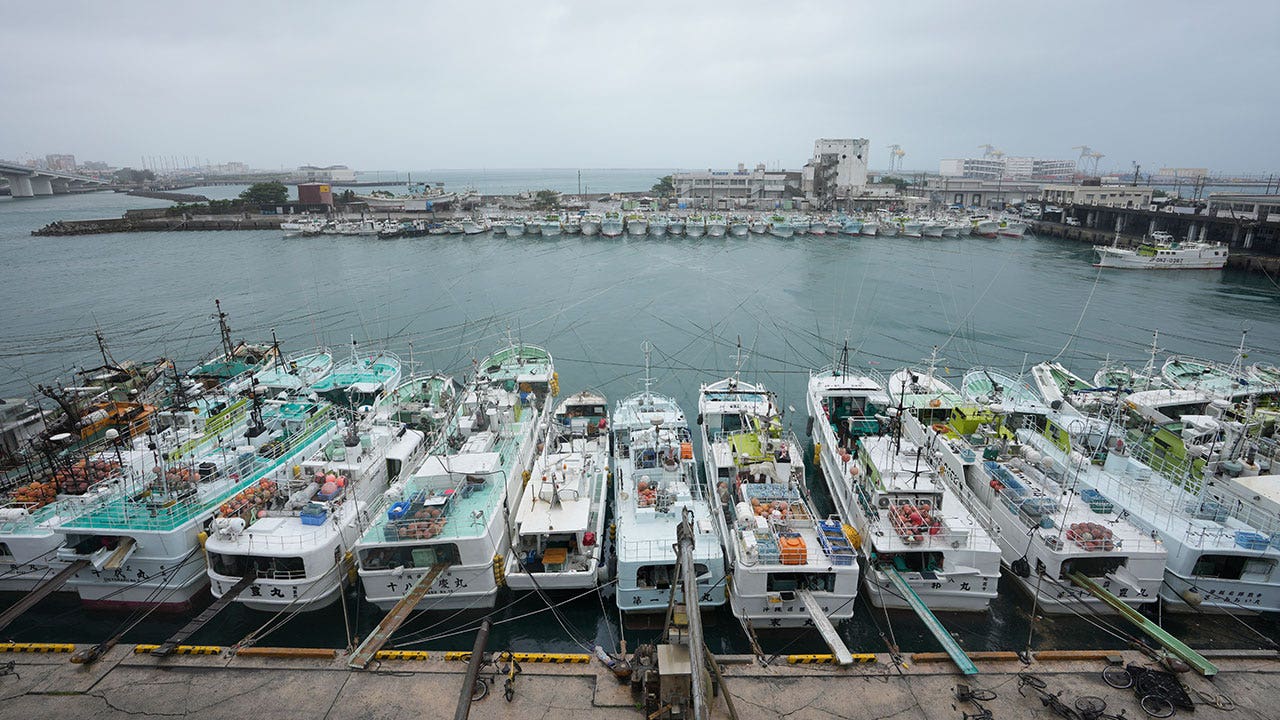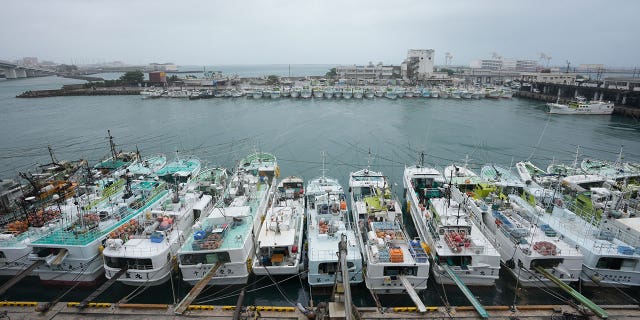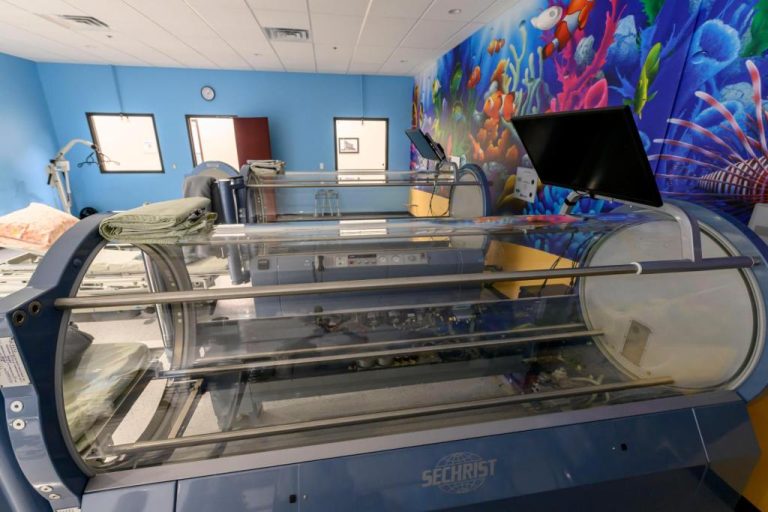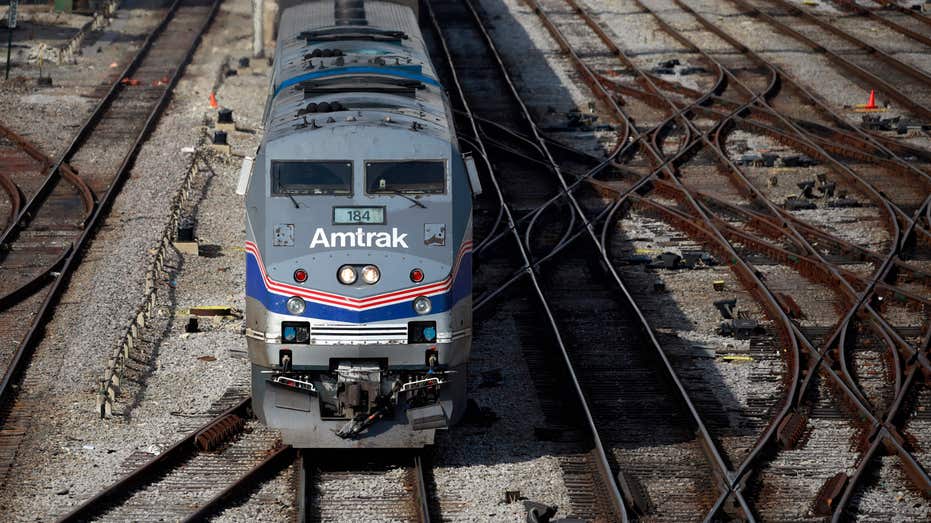
- As Tropical Storm Mawar approaches Japan’s southern Okinawa islands, businesses, fishermen, and the region’s airport are taking precautions.
- Tropical Storm Mawar was previously a typhoon but is still packing high wind speeds of up to 66 miles per hour.
- However, many residents in Naha on the main Okinawan island, where 20,000 U.S. forces are based, appeared unworried of the approaching storm.
A weakened Tropical Storm Mawar headed toward Japan’s southern archipelago of Okinawa on Thursday, leading businesses and the airport to close and fishermen to batten down their boats in preparation.
Many residents in the prefectural capital of Naha on the main Okinawan island, where about 20,000 U.S. forces are based, appeared unworried even as they took precautions.
Mawar, formerly a typhoon but now packing winds of up to 66 miles per hour, was around Miyako, one of Okinawa’s remote islands, the Japan Meteorological Agency said. The storm could approach Okinawa’s main island on Friday and bring powerful rainstorms to the region, it said.
TYPHOON MAWAR HEADS TO JAPAN, LASHES EASTERN TAIWAN AND NORTHERN PHILIPPINES ON THE WAY
A 76-year-old fisherman, Tatsunori Yamashiro, said he wasn’t too worried by the weakening storm.
“All I can do now is to wait,” he said, sitting in his fishing boat, which he’d securely tied to a port facility. He said Mawar could have caused damage if it hit Okinawa when it was a typhoon. “It’s now weakening, and because the water temperature around Okinawa is not very high, it will continue to get smaller.
Mawar largely skirted Taiwan and the Philippines after tearing across Guam last week. It passed by Taiwan on Tuesday with sustained winds of 96 mph and gusts of up to 118 mph, sending high waves crashing on the island’s east coast.

As Tropical Storm Mawar approaches, fishing boats are secured by rope at the Tomari fishery port in Naha in the main Okinawa island of southern Japan on June 1, 2023. (AP Photo/Hiro Komae)
In the Philippines, authorities said heavy rains were expected to continue in the country’s north through at least Thursday and warned of flooding, possible landslides and gale-force winds before the typhoon exits the country’s area of responsibility.
Another fisherman in Okinawa, Ryo Niinuma, 27, said he tied up his boat and cushioned its sides so that it wouldn’t get bumped by boats next to it.
“We are used to typhoons,” he said. “This one seems to be a bit early this year, but we’ve had bigger ones in the past.”
GUAM ‘VERY BLESSED’ AS TYPHOON MAWAR LEAVES WITH NO REPORTED DEATHS
People on Okinawa had been preparing for the approaching typhoon when a warning siren awoke them Wednesday to alert them to a North Korean rocket launch. Officials urged people to stay indoors or take shelter underground in case of falling debris.
The rocket failed and did not come anywhere near Japan, but residents already anxious about the typhoon said it added to their stress.
Japan had deployed a number of PAC-3 land-to-air interceptors on southern islands ahead of the launch, but some of them were kept on base instead of being set up at intended locations due to safety precautions ahead of the typhoon.
CLICK HERE TO GET THE FOX NEWS APP
The U.S. military, which has troops stationed at multiple facilities on Okinawa, will take preparatory action as the storm draws closer, depending upon need, said Capt. Brett Dornhege-Lazaroff, spokesman for the 3rd Marine Expeditionary Force on Okinawa.
“Our installations are tracking the storm closely,” he said.
Mawar lashed Guam last week, becoming the strongest typhoon to hit the U.S. Pacific territory in more than two decades, flipping cars, tearing off roofs and knocking out power.
In the Philippines, more than 8,000 people had been evacuated from flood- and landslide-prone communities to emergency shelters or relatives’ houses but many returned home on Wednesday as the weather started to clear. No major damage was reported.





